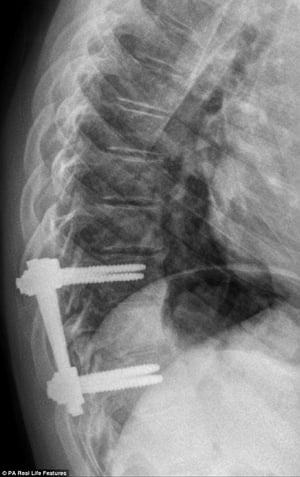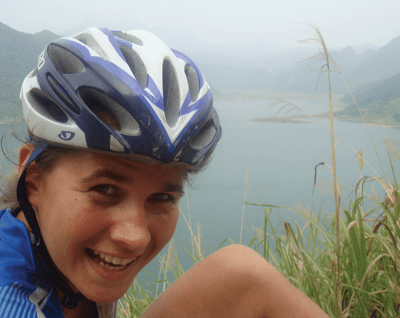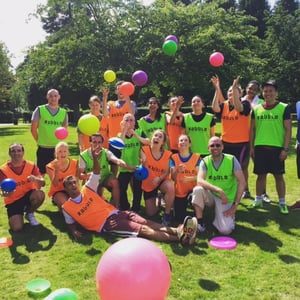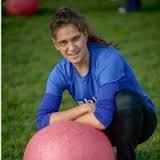Finally the Olympics are upon us once more. The peak in every athlete’s training cycle and the pinnacle of every athlete’s career. It’s a spectacle for us. But it’s work for them.
I was a former international runner and then triathlete. I was hoping for a slot in the 2012 Olympics and people often ask me: "Am I jealous of those who made it?" "Do I wish I continued in the sport?" "Do I find it hard to watch?"
The answer is confidently ‘no’. I love the Olympics for the display of talent, discipline, stories and incredible achievements, and I love it even more when someone I know achieves their dream. The athletes who make it are incredibly disciplined and make huge sacrifices to be there. I was once one of these athletes. I missed holidays, birthdays, lie in’s, fried food and freedom. At the time, I never considered it a sacrifice and if I had, I would never have reached the standard I did.
I had a small taste of international success, running internationally, being mentored by Kelly Holmes and being selected to train full-time on a British Triathlon talent programme. But one day I was two hours through a typical Sunday morning ride, having already completed a 2 hour swim when my fate changed. I was knocked off my bike and hit by an oncoming Landrover. I lay on the ground in an unimaginable amount of pain with 12 broken vertebrae, two punctured lungs, multiple broken ribs and a broken collarbone. I was the only person in the scene who didn’t think I was going to die. I was lucky and owe my life to a passing Leicester Tigers physio and the Air Ambulance service, without whom I would certainly not have survived.

So focused on my goal of being the best athlete I could be, I was back in an international triathlon event 6 months after being picked up off the road. Metalwork was holding my back together, I taught myself to breathe, walk, run and swim again, I competed ignoring my broken collarbone - in my mind I had to overcome my cycling fears and get back to the startline as quickly as possible if I had any chance of success. I was on a blinkered mission. Everyday I would wake up with agony in my back and continue my extreme training programme.
After more spinal surgery, I re-enrolled in university and came to a dramatic conclusion.
That I didn’t really enjoy training.
A full time triathlon training programme is 35 hours a week of gruelling, long, repetitive and lonely exercise. I realised that to be the best in the world, I needed to set myself on another 4 year journey and hope that I didn’t get unlucky. For the first time ever, I thought about all the other things I couldn’t do. I was 21, with 35 hours a week of training you can’t have a career, you can’t properly explore the world and go travelling, relax on the weekends or do crazy sports that might risk injury. So I left the sport.
I cycled from Beijing to London to raise money for the Air Ambulance that saved my life and I was finally able to start having a normal relationship with exercise. Going out to play different games each day with my mates, on my schedule and loving every minute of it.

I wanted to change the way in which exercise is perceived. I wanted to create a space where exercise was the highlight of the day.
So, I founded Rabble.
Rabble transforms exercise into games, we play everything and anything from British Bulldog to Capture the Flag, Dodgeball, Frisbee, the Hunger Games and more. The focus is on fun and anyone can show up and play, they are all team games and the sessions are different every time. People play hard to win and the rules are designed so that they get fit without realising it. We made team games that don’t require you to have any knowledge of the rules, have any equipment, whip up a team or have any commitments to the team. We made team games accessible to working adults.

The key reason I don’t feel resentful of my friends competing in the upcoming Olympics is because I feel satisfied and fulfilled with my purpose now. I exercised my right to choose, to compete or not and I’m working on a mission I really care about and I’m changing other’s lives for the positive. It’s great to see people begin to love exercise and get really fit.
Being normal is hugely under-rated. Being normal allows you to have a level of balance that isn’t attainable as a full time athlete. I can go out and play with my friends, or I can go tomorrow or not at all and not feel guilty. I can eat what I like, go on holiday when I like and I don’t have constant muscular pain and tiredness. Watch the Olympics with awe, the athletes earned their moment in the limelight. Just don’t be ashamed of being normal, it’s something to be proud of.


